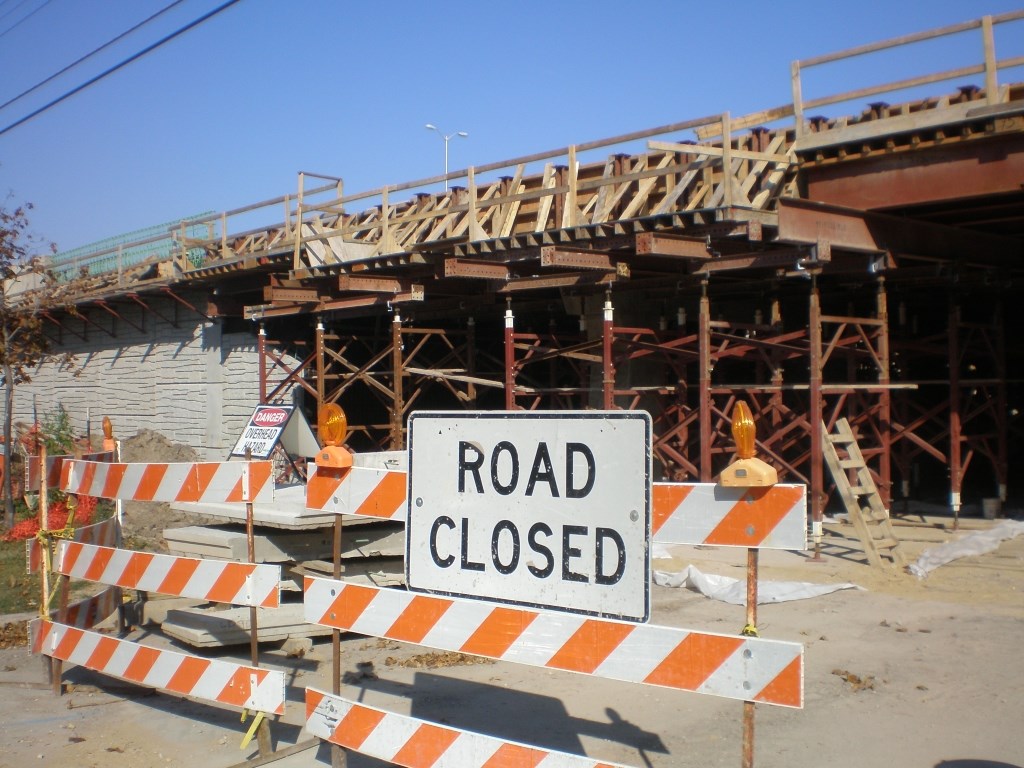Will Schools, Health Care Pay for Roads?
Republicans argue over how to fund highways, could raid other funding.
Wisconsin lawmakers are struggling with how to address a shortfall in the pot of money that the state uses to build and repair highways. There are several possible solutions, but one course of action should be off the table: siphoning off resources slated to pay for the education of Wisconsin schoolchildren or helping people with low incomes get the medical care they need, and redirecting that money to pay for highways.
State lawmakers are in a bind because there is not nearly enough money in the state’s Transportation Fund to keep planned highway projects on schedule. That shortfall is largely due to the fact that Wisconsin’s gas tax has been frozen for the past decade, with inflation eating away at the value of the tax and causing a slow decline in the gas tax revenues into the Transportation Fund.
There are a variety of opinions among lawmakers about how to solve this dilemma. Some Republicans, like Assembly leader Robin Vos, are open to the idea of an increase in the gas tax. Others, like State Senator Chris Kapenga, favor cutting highway spending and leaving the gas tax untouched. Governor Walker has signaled that he may be open to an increase in the gas tax if is paired with a corresponding tax cut. Because Republicans control the Governor’s house, State Senate and State Assembly, it will be Republicans who ultimately decide how to address this issue.
There are several potential solutions, but one option should be kept off the table: Taking away resources that support important Wisconsin priorities – like excellent public schools and safe communities – and instead using that money to build highways. Keep an eye out for these three ways that lawmakers might try to do just that in the budget process next year:
1. By transferring money out of the state’s General Fund – which pays for schools, health care, the University of Wisconsin System, the technical college system, support for local governments and many other purposes – and into the Transportation Fund.
State lawmakers have shifted millions of dollars from the General Fund to the Transportation Fund in recent years.
Voters recently approved a state constitutional amendment prohibiting transfers from the Transportation Fund to the General Fund, but transfers going in the other direction – from the General Fund to the Transportation Fund – are still fair game.
2. By requiring that some borrowing for highways be paid back with money from the General Fund instead of the Transportation Fund.
The state borrows money to build highways, spreading the cost of projects out over several years. In coming years, up to a quarter of every dollar spent from the Transportation Fund will go towards paying off the debt.
In the past, lawmakers have tapped the General Fund to pay part of the borrowing costs, and they might try to make the General Fund responsible for paying off a larger part of the highway debt going forward. That move would reduce resources available to support Wisconsin’s schools and communities in the future.
3. By pairing an increase in the gas tax with a corresponding cut in a tax for which the revenue is deposited in the General Fund or goes directly to communities.
Under this approach, the state and local governments would raise the same amount of revenue overall, but a larger share of the money to go into the Transportation Fund, and a smaller share to other purposes.
Some have speculated that Governor Walker will propose a bargain to increase the gas tax while eliminating the state’s personal property tax. The personal property tax paid is by businesses on the value of their equipment, machinery, and furniture. Because the personal property tax is paid to local governments, eliminating it would leave local governments holding the bag for providing the same services to community members, but with fewer resources.
Lawmakers should think creatively about how to solve the state’s transportation financing issues. But they should rule out draining money away from important state priorities that improve the lives of Wisconsin residents and strengthen our communities.
Op-Ed
-
Wisconsin Candidates Decry Money in Politics, Plan to Raise Tons of It
 Dec 15th, 2025 by Ruth Conniff
Dec 15th, 2025 by Ruth Conniff
-
Trump Left Contraceptives to Rot; Women Pay the Price
 Dec 8th, 2025 by Dr. Shefaali Sharma
Dec 8th, 2025 by Dr. Shefaali Sharma
-
Why the Common Council’s Amended Budget is Good Policy for Milwaukee
 Nov 20th, 2025 by Alds. Marina Dimitrijevic and Russell W. Stamper, II
Nov 20th, 2025 by Alds. Marina Dimitrijevic and Russell W. Stamper, II
Transportation
-
Congestion Pricing Cuts Air Pollution in New York City
 Dec 14th, 2025 by Jeff Wood
Dec 14th, 2025 by Jeff Wood
-
FTA Tells Milwaukee to Crack Down on Fare Evasion — Even Where Fares Don’t Exist
 Dec 12th, 2025 by Graham Kilmer
Dec 12th, 2025 by Graham Kilmer
-
Will GOGO’s Bus Service Ever Get Going?
 Dec 9th, 2025 by Jeramey Jannene
Dec 9th, 2025 by Jeramey Jannene























Yes
Medicaid will swallow up everything, in the next decade. Damn lucky that Walker did not buy into the expanded Medicaid that the Lefties wanted or we would be cutting schools to the bone. Trump must turn this into a grant program for the states to fix the mess he started with Obamacare.
Walker has saved us billions form the stupid Halfastn train, the Obamacare exchanges,the property tax cuts, income tax cuts, Act 10 or Wisconsin would be like Illinois from the last time that the Left, under Doyle was in charge.
WCD, Republicans have been running WI for nearly a decade & you’re still blaming Doyle? What exactly have R’s been doing the last 10 years & why are they getting a government salary for doing nothing?
Small business & citizens of WI pay enough in taxes already, we don’t need more Republican schemes to make our school taxes go up, our healthcare premiums go up, our gas bill go up… the list goes on & on…
Maybe we should be following the way Minnesota is running their state. Everything, I mean everything I read about Minnesota and their economy is positive!!
You guys sound a lot like the Rs in Kansas, where NOTHING is getting better. The legislators in KS take dollars from one source to cover the huge holes they have created in other areas – schools in particular suffer their stupidity. Good luck in WI.
Wisconsin should end cannabis prohibition, legalize, tax and regulate this vast and ever growing black market, our the drug cartels prohibiton is making obscenely wealthy and invest the estimated 60-90 million the state would collect annually into its failing roafs, infrastructure as well as invest in schools and education, rather than divest from it.
What are “communities?” Be specific about where money should go: counties, townships, cities, whatever, rather than the useless “communities”.